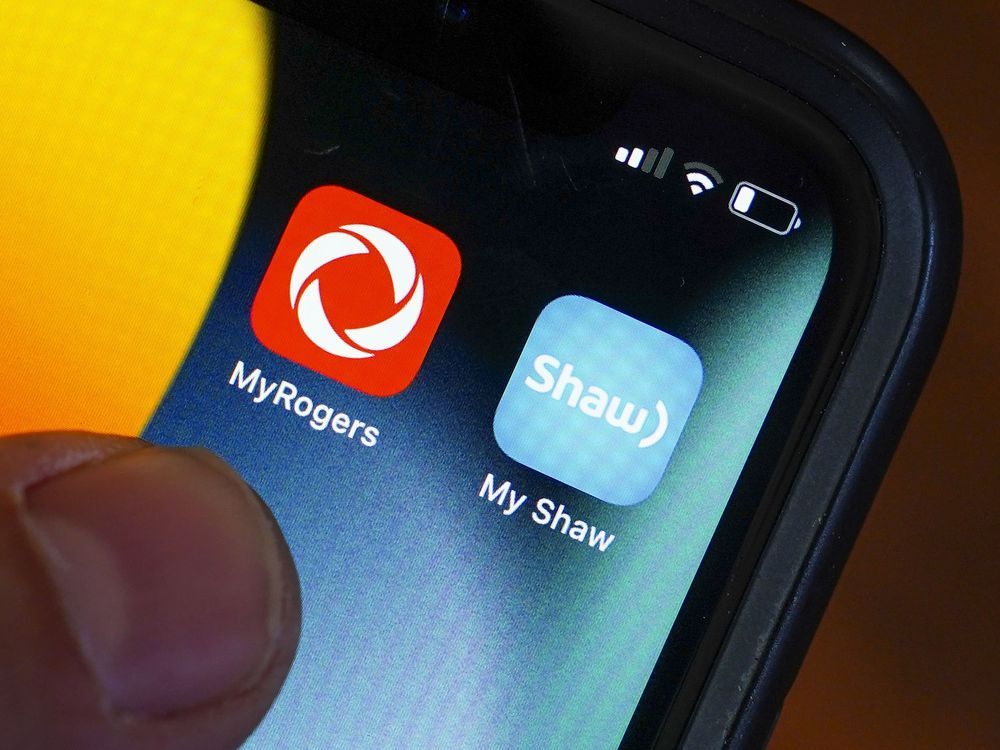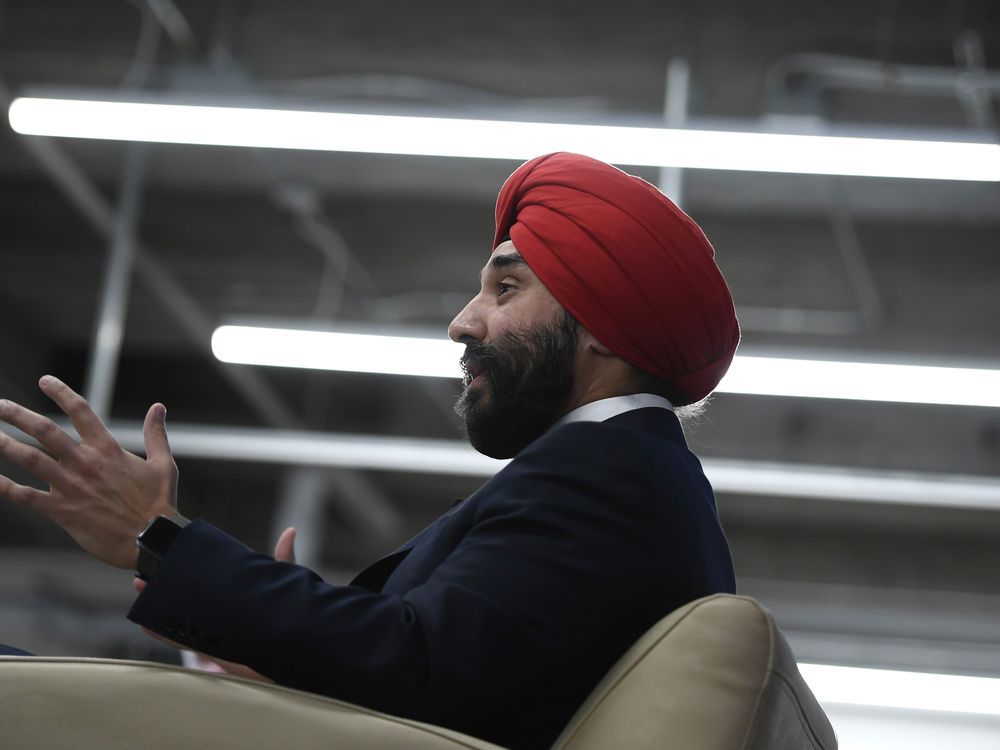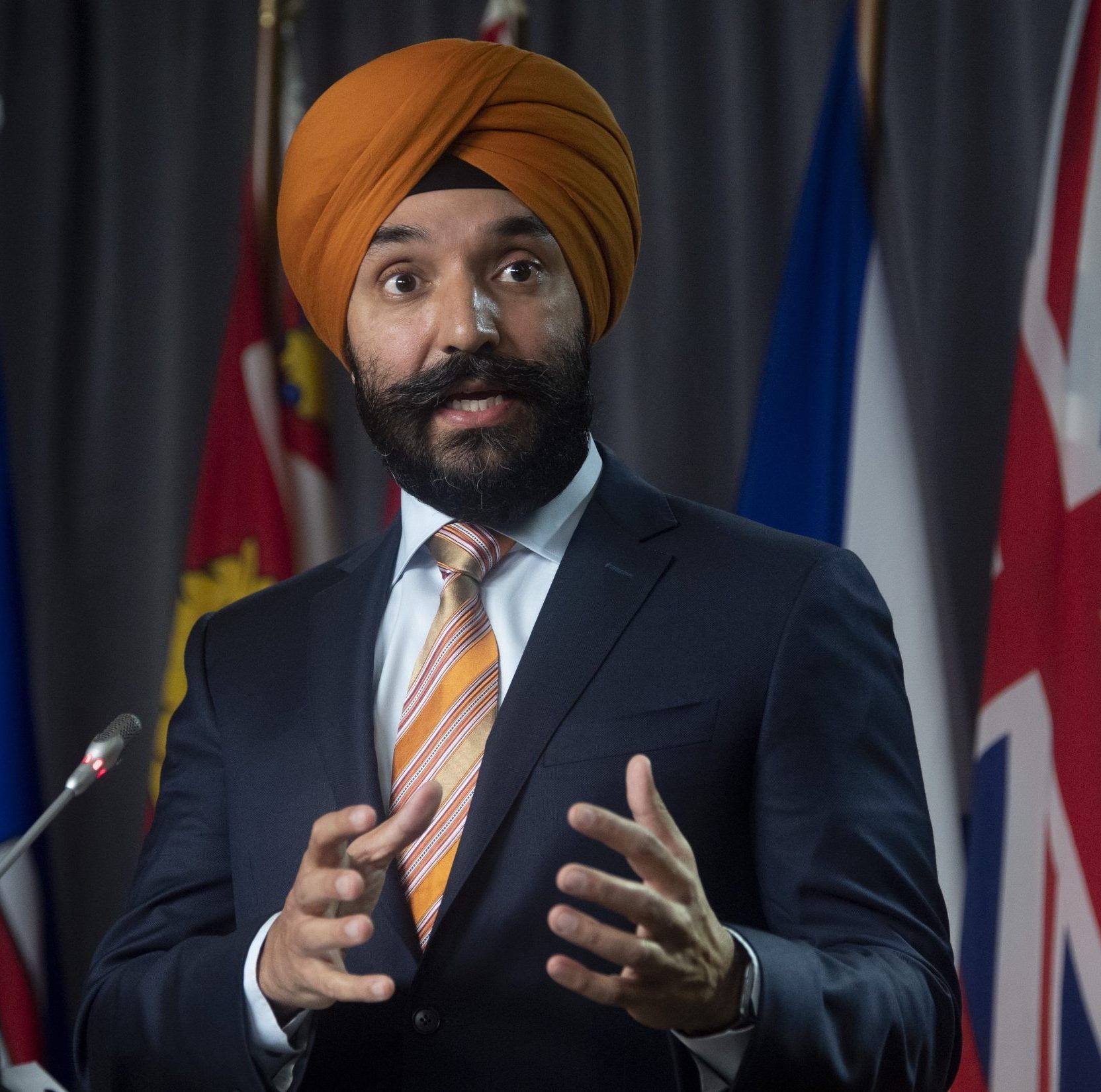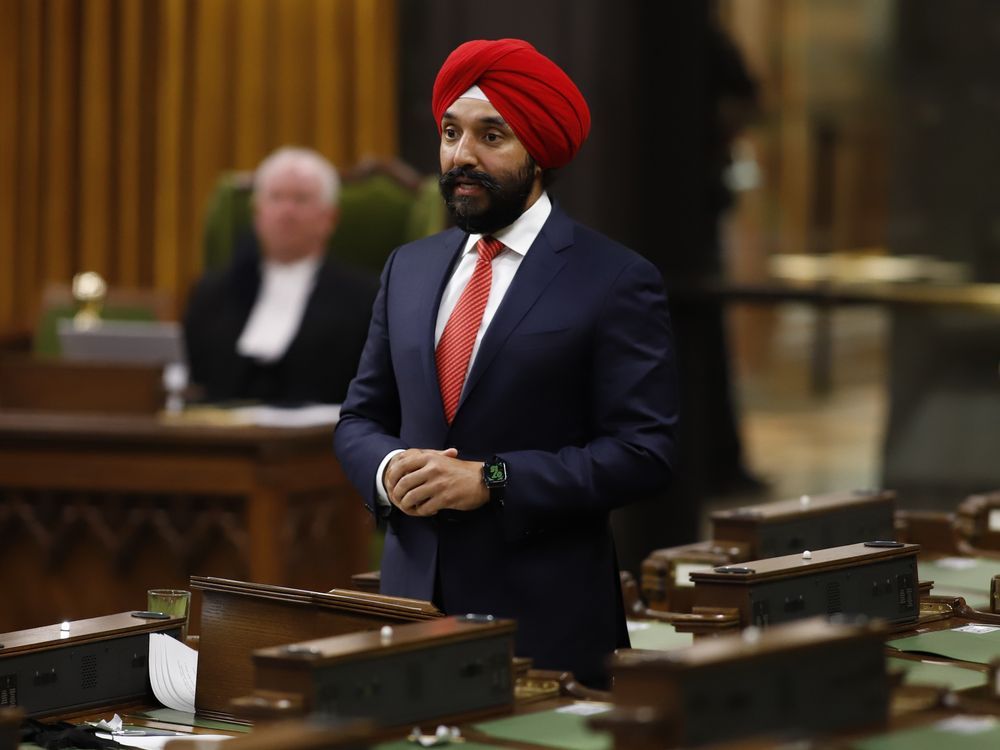Ottawa gives final approval for Rogers $26B purchase of Shaw
Author of the article:Canadian Press
Canadian Press
Sammy Hudes
Published Mar 31, 2023 • Last updated 1 day ago • 4 minute read
The largest telecommunications deal in Canadian history will go forward after Rogers Communications Inc.’s $26-billion takeover of Shaw Communications Inc. received approval from Ottawa on Friday.
The green light means the deal has cleared its final regulatory hurdle just over two years after it was first announced.
But Industry Minister Francois-Philippe Champagne took a stern tone on Friday, vowing to “be like a hawk on behalf of Canadians” to ensure compliance with the conditions he set, aimed at bolstering competition and lowering phone and internet costs.
Champagne approved the transfer of Shaw-owned Freedom Mobile’s wireless licences to Quebecor Inc.’s Videotron, which operates in Quebec and some border regions of Ontario. Rogers and Shaw agreed in June 2022 to sell Freedom Mobile to Videotron for $2.85 billion in an attempt to ease competition concerns raised by the original proposal.
Also Friday, Champagne also announced his department would not allow any further transfers of wireless spectrum until it completes a review of Canada’s spectrum transfer framework.
Rogers first announced its deal to buy Shaw in March 2021 and the closing deadline has been pushed back numerous times since then. The three companies said Friday they expected to complete the transaction by April 7.
Ottawa has secured 21 legally enforceable commitments from Rogers and Videotron to drive prices lower, Champagne said, and the conditions “should not be taken lightly.”
Those conditions include Rogers establishing a second headquarters in Calgary and adding 3,000 new jobs based in Western Canada “in the coming months” that it must maintain for at least 10 years.
The undertaking released by the government in relation to the agreement stated that Rogers must create those jobs over a period of five years and maintain them for at least 10 years following the deal’s closure.
It must also spend $5.5 billion to expand 5G coverage and additional network services, as well as a further $1 billion to connect rural, remote and Indigenous communities.
Videotron must offer plans that are at least 20 per cent lower than its competitors and spend $150 million over the next two years to upgrade Freedom Mobile’s network. It is also restricted from transferring any Freedom Mobile licences for a decade.
Telecommunications consultant Mark Goldberg said the terms outlined by the federal government make sense, calling the penalties “meaningful.”
But he noted the companies had already publicly committed to many of those conditions throughout the two-year process.
“I think this deal could have been done a year ago if the Competition Bureau hadn’t been stubborn,” Goldberg said.
In January, the Federal Court of Appeal rejected the Competition Bureau’s bid to quash the deal.
The regulator had argued that approving the merger would reduce competition and result in higher cellphone bills, poorer service and fewer options for consumers. It wanted the court to overturn a Competition Tribunal ruling in favour of the deal.
Instead, the court sided with the tribunal’s view that “there was no substantial lessening of competition” at risk.
The Canadian Radio-television and Telecommunications Commission approved Rogers’ acquisition of Shaw’s broadcasting services in March 2022.
When asked how deal’s the conditions would be enforced, Champagne said he “would not mess with the regulator,” though he did not elaborate on what consequences regulators would be able to impose.
If Rogers breaches its conditions, it must pay up to $1 billion in damages, the minister said. Videotron would potentially be subject to $200 million in penalties if it fails to meet its commitments.
But some observers worried the conditions do not go far enough. Keldon Bester, co-founder of the Canadian Anti-Monopoly Project, questioned whether the penalties were sufficiently aggressive.
“The reality is that the deal shouldn’t be proceeding in the first place and so at best, this is a consolation prize,” he said.
“There’s a big incentive for both Rogers and Videotron to shirk the commitments. It creates the incentive for parties to do the math and say, ‘If we lose more money making these commitments, why bother fulfilling (them)?”’
Rogers president and CEO Tony Staffieri welcomed Friday’s news.
“We are very pleased to move forward with this transformative merger and proudly deliver on our commitments to enhance and expand network coverage, connect underserved communities, and improve access for low-income Canadians,” Staffieri said in a press release.
“Building on a shared legacy with Shaw, we will invest substantially to bring more choice, more value, and more connectivity to Canadians across the country.”
Carleton University communications professor Dwayne Winseck, director of the Canadian Media Concentration Research Project, said Champagne has created a two-tiered regulatory system.
He said the minister’s approval makes it appear as though Rogers and Videotron are governed by a set of “sidebar deals … concocted on the fly outside of the normal public law regime that sets out what the regulatory framework is.”
“Why should the minister be cobbling together a set of private agreements to help get a deal across the finish line that should have been dead on arrival? This makes the minister look like the handmaiden of capitalism as opposed to a democratic government watching out for public interests and promoting … as much competition in these markets as possible.”
Champagne told reporters that the Liberal government has “changed the game” for telecommunications companies in Canada, but promised “this is not the end of it.”
“If we don’t see prices coming down … I’ll be seeking additional power to make sure that we drive down prices and at that time, everything is on the table,” he said.
But OpenMedia, an advocacy organization that promotes internet affordability, said Champagne’s approval put “the nail in the coffin of competition in telecommunications in Canada.” It urged full-scale competition reform in Canada to avoid more mergers in the future.
“It’s hard to reconcile this week’s federal budget filled with promises of affordability measures, with such a direct assault on choice and affordability for internet connectivity,” said executive director Laura Tribe in a press release.
— With files from Nojoud Al Mallees in Ottawa.
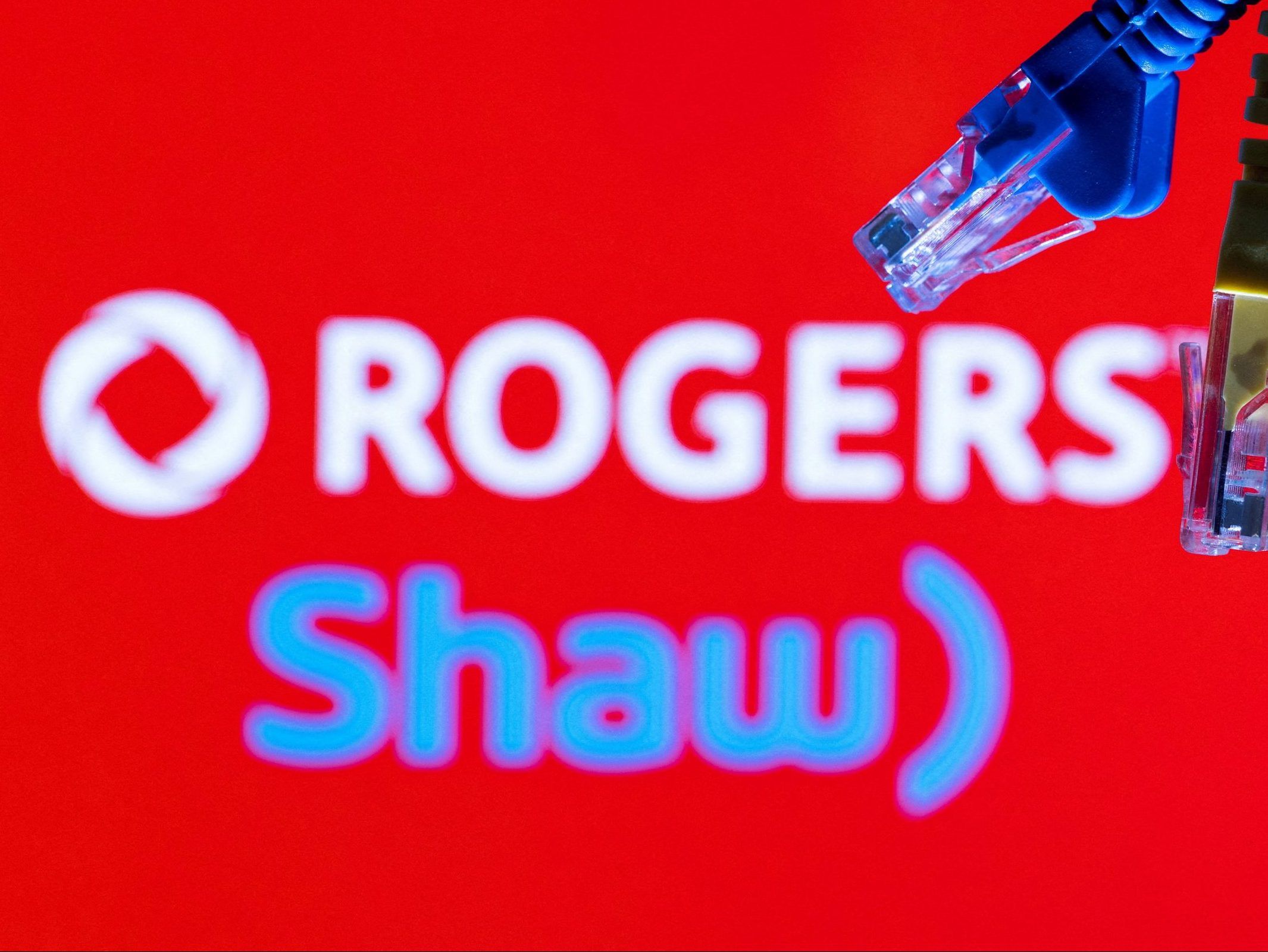
 torontosun.com
torontosun.com
Author of the article:Canadian Press
Canadian Press
Sammy Hudes
Published Mar 31, 2023 • Last updated 1 day ago • 4 minute read
The largest telecommunications deal in Canadian history will go forward after Rogers Communications Inc.’s $26-billion takeover of Shaw Communications Inc. received approval from Ottawa on Friday.
The green light means the deal has cleared its final regulatory hurdle just over two years after it was first announced.
But Industry Minister Francois-Philippe Champagne took a stern tone on Friday, vowing to “be like a hawk on behalf of Canadians” to ensure compliance with the conditions he set, aimed at bolstering competition and lowering phone and internet costs.
Champagne approved the transfer of Shaw-owned Freedom Mobile’s wireless licences to Quebecor Inc.’s Videotron, which operates in Quebec and some border regions of Ontario. Rogers and Shaw agreed in June 2022 to sell Freedom Mobile to Videotron for $2.85 billion in an attempt to ease competition concerns raised by the original proposal.
Also Friday, Champagne also announced his department would not allow any further transfers of wireless spectrum until it completes a review of Canada’s spectrum transfer framework.
Rogers first announced its deal to buy Shaw in March 2021 and the closing deadline has been pushed back numerous times since then. The three companies said Friday they expected to complete the transaction by April 7.
Ottawa has secured 21 legally enforceable commitments from Rogers and Videotron to drive prices lower, Champagne said, and the conditions “should not be taken lightly.”
Those conditions include Rogers establishing a second headquarters in Calgary and adding 3,000 new jobs based in Western Canada “in the coming months” that it must maintain for at least 10 years.
The undertaking released by the government in relation to the agreement stated that Rogers must create those jobs over a period of five years and maintain them for at least 10 years following the deal’s closure.
It must also spend $5.5 billion to expand 5G coverage and additional network services, as well as a further $1 billion to connect rural, remote and Indigenous communities.
Videotron must offer plans that are at least 20 per cent lower than its competitors and spend $150 million over the next two years to upgrade Freedom Mobile’s network. It is also restricted from transferring any Freedom Mobile licences for a decade.
Telecommunications consultant Mark Goldberg said the terms outlined by the federal government make sense, calling the penalties “meaningful.”
But he noted the companies had already publicly committed to many of those conditions throughout the two-year process.
“I think this deal could have been done a year ago if the Competition Bureau hadn’t been stubborn,” Goldberg said.
In January, the Federal Court of Appeal rejected the Competition Bureau’s bid to quash the deal.
The regulator had argued that approving the merger would reduce competition and result in higher cellphone bills, poorer service and fewer options for consumers. It wanted the court to overturn a Competition Tribunal ruling in favour of the deal.
Instead, the court sided with the tribunal’s view that “there was no substantial lessening of competition” at risk.
The Canadian Radio-television and Telecommunications Commission approved Rogers’ acquisition of Shaw’s broadcasting services in March 2022.
When asked how deal’s the conditions would be enforced, Champagne said he “would not mess with the regulator,” though he did not elaborate on what consequences regulators would be able to impose.
If Rogers breaches its conditions, it must pay up to $1 billion in damages, the minister said. Videotron would potentially be subject to $200 million in penalties if it fails to meet its commitments.
But some observers worried the conditions do not go far enough. Keldon Bester, co-founder of the Canadian Anti-Monopoly Project, questioned whether the penalties were sufficiently aggressive.
“The reality is that the deal shouldn’t be proceeding in the first place and so at best, this is a consolation prize,” he said.
“There’s a big incentive for both Rogers and Videotron to shirk the commitments. It creates the incentive for parties to do the math and say, ‘If we lose more money making these commitments, why bother fulfilling (them)?”’
Rogers president and CEO Tony Staffieri welcomed Friday’s news.
“We are very pleased to move forward with this transformative merger and proudly deliver on our commitments to enhance and expand network coverage, connect underserved communities, and improve access for low-income Canadians,” Staffieri said in a press release.
“Building on a shared legacy with Shaw, we will invest substantially to bring more choice, more value, and more connectivity to Canadians across the country.”
Carleton University communications professor Dwayne Winseck, director of the Canadian Media Concentration Research Project, said Champagne has created a two-tiered regulatory system.
He said the minister’s approval makes it appear as though Rogers and Videotron are governed by a set of “sidebar deals … concocted on the fly outside of the normal public law regime that sets out what the regulatory framework is.”
“Why should the minister be cobbling together a set of private agreements to help get a deal across the finish line that should have been dead on arrival? This makes the minister look like the handmaiden of capitalism as opposed to a democratic government watching out for public interests and promoting … as much competition in these markets as possible.”
Champagne told reporters that the Liberal government has “changed the game” for telecommunications companies in Canada, but promised “this is not the end of it.”
“If we don’t see prices coming down … I’ll be seeking additional power to make sure that we drive down prices and at that time, everything is on the table,” he said.
But OpenMedia, an advocacy organization that promotes internet affordability, said Champagne’s approval put “the nail in the coffin of competition in telecommunications in Canada.” It urged full-scale competition reform in Canada to avoid more mergers in the future.
“It’s hard to reconcile this week’s federal budget filled with promises of affordability measures, with such a direct assault on choice and affordability for internet connectivity,” said executive director Laura Tribe in a press release.
— With files from Nojoud Al Mallees in Ottawa.

Ottawa gives final approval for Rogers $26B purchase of Shaw
Rogers Communications Inc's $26-billion takeover of Shaw Communications Inc. cleared the last regulatory hurdle Friday.
